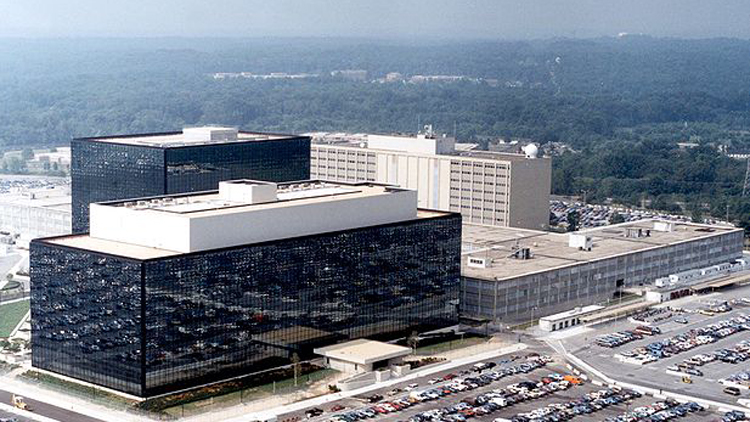Newly disclosed documents unveiling the close relationship between the National Security Agency and AT&T could breathe new life into a long-running legal dispute about the NSA’s controversial method of tapping the Internet backbone on U.S. soil.
This program, according to documents provided by Edward Snowden, is largely enabled by telecom giant AT&T, which filters Internet traffic, based on NSA instructions. AT&T then forwards the “take” to the spy agency’s storage facilities for further review and analysis.
But a single email traverses the Internet in hundreds of tiny slices, called “packets,” that travel separate routes. Grabbing even one email requires a computer search of many slices of other people’s messages.
Privacy advocates have long argued in court that grabbing portions of so many emails — involving people not suspected of anything — is a violation of the protection against unreasonable searches and seizures provided by the Fourth Amendment to the Constitution.
The Electronic Frontier Foundation, a digital civil liberties group, is now hoping that the new documents will bolster their claims in a long-running case, Jewel v. NSA. “We will be presenting this information to the court,” said Cindy Cohn, executive director of the foundation. A Department of Justice spokesman declined to comment.
So far, the only court that has reviewed the constitutional question is the secret panel of jurists known as the Foreign Intelligence Surveillance Court. This court only hears arguments from the government and all of their decisions are highly classified.
Other federal courts have declined to debate the constitutional question for fear that discussing any collaboration with telecom companies would damage American security. Last year, James Clapper, the director of national intelligence, told a court that confirming the identities of any telecoms that work with the NSA would alert terrorists that “certain channels of communications are vulnerable to NSA interception.”
But the internal NSA documents describe a nearly unavoidable surveillance system on AT&T’s Internet backbone in the United States. One document shows a technical sketch of how AT&T provides the spy agency not only with access to traffic on its own network, but also traffic from other telecoms that crosses its network.
Such cooperative arrangements, known in the industry as “peering,” are central to the speed of the global Internet. The packets that make up emails and other messages are sent through the fastest routes possible, jumping on and off each company’s network as needed. That means that any Internet user’s communications, regardless of whetherthey are an AT&T customer, could end up on AT&T’s network — and in the NSA’s hands.
The newly disclosed documents seem to confirm the words of former AT&T technician Mark Klein, who has testified that the spy agency had access to vast amounts of data from other telecoms that was transmitted over AT&T’s fiber-optic lines.
Klein’s allegations are central to Jewel v. N.S.A., which alleges that the NSA’s “bulk, untargeted seizure of the Internet communications of millions of innocent Americans” from AT&T’s networks amounted to an unconstitutional search and seizure.
The government has responded that there is no evidence that any particular communications have been copied, and, even if they were, they would have been “destroyed within milliseconds of their creation” if they did not have intelligence value. Even in that scenario, the government says, the surveillance would be a “minimal intrusion on Fourth Amendment interests” that would be “vastly outweighed” by the benefits of the program.
The court agreed, dismissing most of the case in February without examining the plaintiffs’ constitutional questions.
For Kevin Bankston, the new document disclosure is bittersweet. Bankston was the attorney at the EFF who first brought Mark Klein’s allegations to court.
After reviewing the documents, he said, “We were treated as crazy for years for allegations that we now know are substantially true.”
ProPublica is a Pulitzer Prize-winning investigative newsroom. Sign up for their newsletter.































